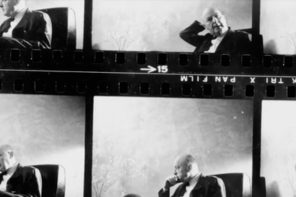I am, I’ve been told, a human. I’m guessing you’ve been told something very similar. This is, at times, a source of shame and guilt (“look what these dastardly humans have done to this planet…”) But, for the most part, it’s been a point of pride. I put on complicated human costumes that veil my animal hide, get onto flying machines that blast me across the face of the earth. I use strange abstract symbols and codes to communicate both useless and necessary threads of conversation to my species. Sometimes it just makes me want to sit back, put my feet up, and marvel.
I’m a good old-fashioned humanist—or, at least, about two-thirds of me is. I’m an academic in that great behemoth we call “the humanities”; a humanist by training. I’ve spent inordinate amounts of time reflecting on human conditions, and ambitions. This has, for me and many humanists, always been a rather “secular” enterprise. But I’ve often been quite religious, almost devotional, in my quest to become more fully human.
In recent years, however, I’ve been increasingly thrown into a kind of spiritual crisis. A dark night of the humanist soul. I’m listening to the ever-mounting evidence that our human life is sucking the planet dry, and I’m increasingly troubled by a complex speciesist problem. Have we become (to borrow from the philosopher Friedrich Nietzsche), so very human that we’re all too human?
Divinely Human
Last winter I was plagued by this “skin thing.” Call it a “skin condition,” if you want a more professional term. My cutaneous cloak was dry, brittle, itchy, and bright red. This started as a little patch on my hands and spread up my arms. It hit my legs. It drove me batty. A friend joked that, like a nervous dog with a bad allergy, I should be given one of those Elizabethan pet collars (you know, the “cone of shame”) so that I could just leave the problem well enough alone.
But I didn’t want a cone of shame. I was convinced that I could mastermind some sort of solution. I approached this as I tend to approach most problems—I tried to think my way out of it, as thinking (for me) is almost preferable to breathing. I did research, detective work. I tried to engineer solutions. I altered my diet several times (and learned that it was not the gluten). I had all sorts of mad scientist tricks up my sleeve.
You might say I’d fallen victim to one of the chief humanist errors: I’d made a fuss about the human ability to rationalize in high style, and I let it feed delusions of omnipotence. Aristotle is often credited with the claim that human beings are the “rational animal”—the one animal who’s touched by, emboldened by, possessed with reason. This allowed us to become what he called the “political animal.” Our reason allows us to use speech, to understand laws, and to utilize the organs of justice that build a civilization.
Thomas Aquinas radicalized this proposition, suggesting that the divine itself was a kind of supreme intellect and that we human creatures are the only ones who can really understand this. To be human is about as divine as any earthling could hope to become. Our reason convinces us we rule the earth. It’s the rational impulse in us that celebrates the technology we’ve devised, to wear other creatures as shoes. Or to hold up our pants.
We live, however, in a scientific age. Research in evolutionary biology indicates that we are not the only creature who thinks. Chimpanzees think, dogs think. Bees appear to communicate their thoughts through a kind of dancing language. Can we really claim that they don’t also understand? Was reason—as this philosophical lineage conceives it—just the colonizer’s tool? One that allowed a select group of humans to appropriate the earth and its resources from other earthlings (both human and non?)
Those Other Worlds
Last winter, I finally gave up the ghost and went to see a mind/body doctor, to bend my brittle academic brain. I went to see an acupuncturist for the first time. Splayed out on a massage table, coated with tiny needles, I felt like a lab rat. I was so tightly wound that when he stuck a needle in my thigh I felt it shudder involuntarily—the way a horse’s muscles seem to ripple like water. He asked me what I did as a PhD student, and I told him (with the typical sense of apologetic dread): theology. He shook his head. “No wonder you’re so distracted. You’re always thinking about those other worlds.”
I tried (without dislodging the needles on my face and neck) to defend myself. “But I’m only interested in gods to the extent that they’re earthlings, too,” I said—forms, figures, and entities shaped by the very planet they effect.
I told him that I studied the ancient philosophical and theological distinctions between gods, humans, and all the “other” animals. And that I wanted to know why we (the human animals) have often been so intent on being “top dog”—right below the gods (if not in a throne alongside them) in the great chain of being. Why have we, for so long, found this such a spiritually satisfying position to aim for?
He narrowed his eyes and nodded his head. “I never found much comfort in the whole idea of being human,” he told me. “I know it’s supposed to make us feel dignified. But I think animals get it right: they eat, they sleep, they run around, and make nests and babies. I just want to be an animal.” At that moment—a bit exhausted by my troubled humanity—I couldn’t have agreed more.
And yet, the line he seemed to be drawing (between a human who seeks abstract things like dignity and an animal who seeks the more tangible romp, or meal) is a false dichotomy. We humans are, today, animals like any other. We always have been. Our American culture, however, appears designed to culminate in a magnificently human apex. This has long been a problem when it comes to legal rights. I know I don’t have to explain that the fight for animal rights has fanned the flame of much heated political controversy. And I won’t take an ethical position on that now. Because I’m pointing to something else that, I think, is increasingly under fire: the powerful, dreamlike, quasi-trance state driven by that powerful myth of being human.
A Spiritual Crisis
The notion that we are human is what philosophers call an ontological proposition: it’s a speculative theory about who we are. But the very rigid ontology that draws a strict and impenetrable line between human and animal being is increasingly coming under fire as “speciesist.” Disciplines across the humanities are slicing themselves open and attempting to discern how our ancient and tumultuous relationship with animals can, among other things, change the way we think about our “all too human” lives. This relatively new inquiry is often loosely described as “animal studies.”
I will admit, I find this whole speculative and ontological debate a bit dizzying—both personally and intellectually. But I’m absolutely fixated on it. I think about it all the time. What would really happen if the abstract, theoretical line between human and animal were to collapse? Or if it were to become so complex and varied that we couldn’t really see where it starts and stops?
This isn’t, in any immediate sense, a religious issue. But it has spiritual stakes and pre-figures religious consequences. If I am an animal, above all else, does this change what I have pious feelings about? What I worship? What I serve and protect? When that old mortal itch starts creeping around underneath my skin… where do I turn for an anti-inflammatory soul cure?




